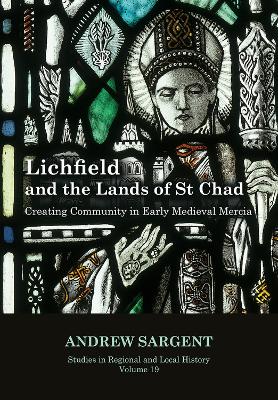This book focuses on the period from the seventh to eleventh centuries that witnessed the rise and fall of Mercia, the great Midland kingdom, and, later, the formation of England. Specifically, it explores the relationship between the bishops of Lichfield and the multiple communities of their diocese. Andrew Sargent tackles the challenge posed by the evidential 'hole' at the heart of Mercia by synthesising different kinds of evidence - archaeological, textual, topographical and toponymical - to reconstruct the landscapes inhabited by these communities, which intersected at cathedrals and minsters and other less formal meeting-places. Most such communities were engaged in the construction of hierarchies, and Sargent assigns spiritual lordship a dominant role in this. Tracing the interconnections of these communities, he focuses on the development of the Church of Lichfield, an extensive episcopal community situated within a dynamic mesh of institutions and groups within and beyond the diocese, from the royal court to the smallest township. The regional elite combined spiritual and secular forms of lordship to advance and entrench their mutual interests, and the entanglement of royal and episcopal governance is one of the key focuses of Andrew Sargent's outstanding new research.
How the bishops shaped and promoted spiritual discourse to establish their own authority within society is key. This is traced through the meagre textual sources, which hint at the bishops' involvement in the wider flow of ecclesiastical politics in Britain, and through the archaeological and landscape evidence for churches and minsters held not only by bishops, but also by kings and aristocrats within the diocese. Saints' cults offer a particularly effective medium through which to study these developments: St Chad, the Mercian bishop who established the see at Lichfield, became an influential spiritual patron for subsequent bishops of the diocese, but other lesser known saints also focused claims to spiritual authority on behalf of their own communities.
Ultimately, Sargent takes issue with the dominance of the 'minster narrative' in much recent scholarship, proposing that episcopal communities be recognised as far more pro-active than is often credited, and that the notion of spiritual lordship offers a more effective way of framing the developments of the period, both ecclesiastical and lay.
- ISBN13 9781912260249
- Publish Date 1 September 2020
- Publish Status Active
- Publish Country GB
- Imprint University of Hertfordshire Press
- Format Hardcover
- Language English
